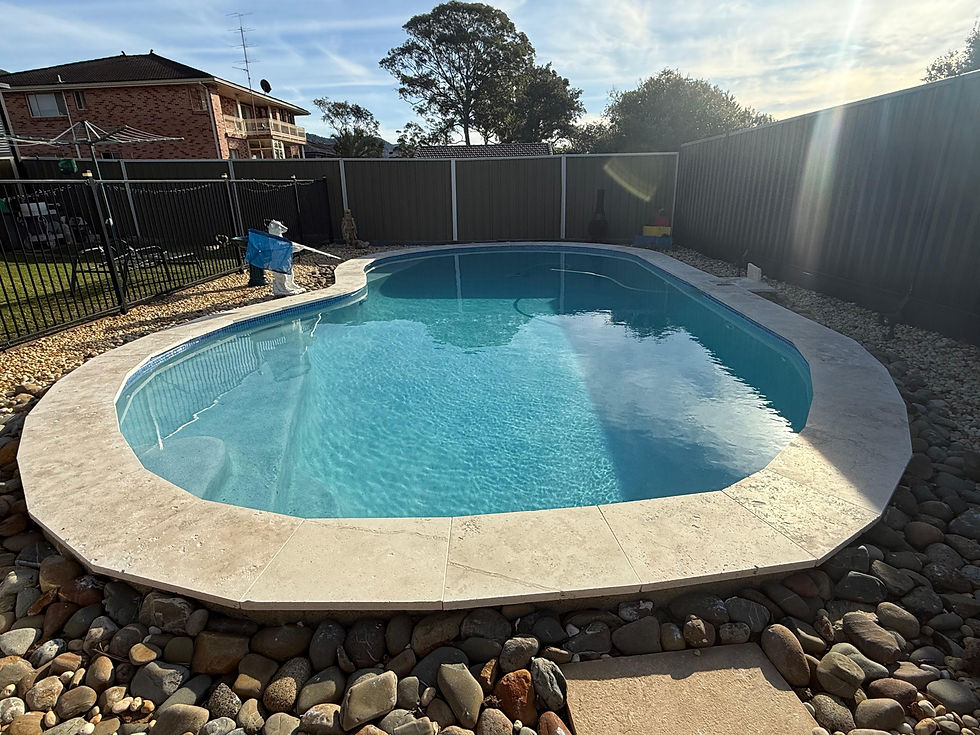Osmosis Treatment for Fibreglass Pools
- SPLASH POOL & SPA
- Aug 20
- 1 min read
Updated: Sep 5

Osmosis is a common issue that can occur in fibreglass swimming pools, caused by water penetrating through microscopic pores in the pool shell and reacting with uncured resins. This process forms blisters or bubbles on the pool’s surface, often filled with a vinegar-like liquid. If left untreated, osmosis can compromise the pool’s appearance and long-term durability.
The Osmosis Treatment Process
Draining the Pool – The pool is completely emptied and allowed to dry.
Inspection & Marking – All osmosis blisters are identified across the pool surface.
Grinding & Removal – Each blister is ground back to remove the contaminated resin and expose clean, solid laminate.
Drying Stage – The affected areas are left to thoroughly dry, ensuring no moisture remains trapped.
Filling & Fairing – The ground-out sections are refilled with specialised fibreglass filler/bog to restore the smooth surface.
Sealing/Barrier Coating – A waterproof epoxy or vinyl ester resin barrier coat is applied to prevent future water penetration.
Resurfacing/Topcoat – Finally, a new top gelcoat, fibreglass laminate, or resurfacing system (such as ecoFINISH or paint) is applied to restore the pool’s look and ensure long-lasting protection.
Benefits of Proper Osmosis Treatment
Stops further blistering and structural weakening
Extends the life of the fibreglass shell
Restores a smooth and attractive pool finish
Provides a protective barrier against future osmosis issues






Comments